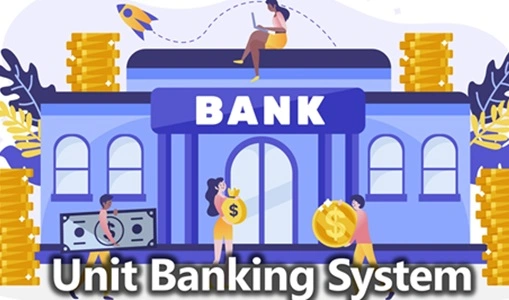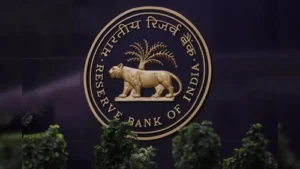Unit Banking is where a very small bank provides financial services to the local community, and that’s pretty much it. With their own management staff and resources, each of these institutions is like a little fort of some sort, you know, very active in decision-making particularly when local demands first take the front stage.
What gives unit banking such appeal though? That is the personal touch. Because bank employees truly know their clients and delve deeply into their wants and circumstances, service seems more customized than the big banks. The main advantage, though, is how these banks reinvest money straight back into the local economy, therefore supporting small companies and local development. For you aka the customer, therefore, that is unit banking, you know, a small-scale, extremely personal, locally oriented way of getting access to financial services. Let’s explore about unit banking pros and cons:

Advantages of Unit Banking
1. Local Money Boosting Local Growth
Are you surprised by the power local investments have? Stashed cash in a unit bank stays right in the area, supporting neighborhood businesses and community projects. Unlike branch banking, in which your hard-earned money may wind up miles away, this maintains the local economy active and thriving, you know?
2. That Personal Touch with Every Transaction
Imagine entering your bank and the manager recognizes your name, the name of your dog, and your preferred taste in coffee. That would be pretty insane, right? But that’s pretty normal with unit banks out there. With unit banking, that degree of personal service is yours. This closeness enables banks to create advice and services exactly fit for every customer, therefore building great loyalty and confidence.
3. Sleek and Efficient Management
Reduced bureaucracy? Alright, that’s awesome! Unit banks cut through the paperwork to simplify administration. This guarantees the bank is agile enough to react to local market changes like a pro as judgments are made swiftly and without effort.
4. Top-Notch Service Quality
Unit banks provide excellent service with a closer operational concentration. How? Well, every client receives royal care, guaranteeing quick and cheerful meeting of all their financial demands, therefore greatly increasing customer happiness.
5. Building Strong Community Bonds
Relationships rule everything, hence unit banks flourish or thrive here. Every client feels like a member of the banking family because of the regular, in-person contacts at your neighborhood bank, which create a strong tie difficult to break.
6. Stability in Times of Trouble
Strikes? Closures? Not an issue at all with unit banks or unit banking! Unit banks run autonomously, hence local problems don’t spread to damage the system. Your local bank remains steady even if others are in a flap.
7. Keeping it Fair and Square
Unit banks maintain the honesty and competitiveness of the financial sector while too tiny to play the monopoly game, you know? Better services and fair pricing for everyone follow from this, no market domination or interventions here!
Disadvantages of Unit Banking
1. Missing Out on the Big Scale Perks
See, one big problem with unit banking is that while unit banks are small, they aim to provide financial services like big banks do, and this really bumps up their operation costs, which ultimately comes down on the customer, and that’s not a good thing at all. After all, as a bank customer, you wouldn’t want to pay extra just for the same financial services you could get elsewhere, you know?
2. Interest Rate Lottery, Yes, That’s What It Feels Like
Have you ever heard of a situation where you took a loan, and now it is time to pay it back, but you don’t know how much interest to pay? Sounds pretty insane right? Well, that’s pretty much what it feels like when you are a customer of unit banks. It is more like a guessing game, and to be honest, the interest rates can vary greatly.
3. Kinda Risky Business
Small scale sometimes carries great risk. Should the local economy collapse without the cushion of a larger network, a unit bank may suffer and perhaps result in bank collapses and that would be kinda a thing that you as a customer would want to avoid at all costs.
4. Limited Financial Options
Seeking a bunch of financial choices? Sure, unit banks are out there to provide you the basic financial services, but what if you want more? Well, particularly if you’re looking for sophisticated investment options or big-ticket borrowing, the menu at a unit bank might seem somewhat small.
5. Cutthroat Competition
Since it is much easier to set up a unit bank rather than a traditional bank, that’s why you can already guess how tough of a competition there is going to be, right? When every unit bank is out for itself, it can lead to a wild west of banking where aggressive tactics might edge out good customer service.
6. Costly Money Moves
What if you want to send money to someone else in some other state? Well, with branch banking or traditional banking, you could do that super fast, but what’s the case with unit banking though? To be honest, it is not as fast as you expect it to be, and that’s a huge issue considering we are living in a digital world where everything is moving so fast.
7. All Your Eggs in One Local Basket
All in on your nearby economic situation? That is fantastic until it is not. Local downturns may affect unit banks, so if your town finds itself in a difficult situation, this could cause problems down the line.
8. Slow to Reach the Rural
Unit banks, which often gravitate toward more metropolitan, prosperous locations, may not show much affection for rural or less profitable places. This can very well leave some regions banking on a prayer for financial services.
Comparison Between Advantages and Disadvantages of Unit Banking
| Advantages | Disadvantages |
| Supports local businesses and projects | Higher operational costs |
| Personalized customer service | Variable interest rates |
| Efficient management with less bureaucracy | Vulnerability to local economic downturns |
| High service quality | Limited financial options |
| Strong community relationships | Intense competition |
| Stability during local crises | Slower money transfers |
| Promotes fair pricing and competition | Over-reliance on the local economy |
| Limited reach in rural areas |

















